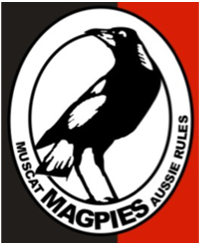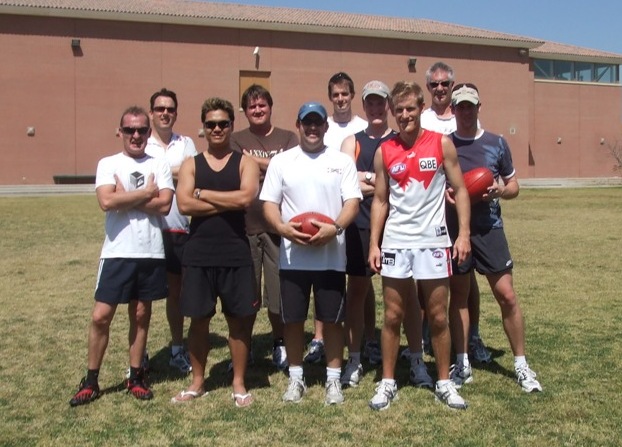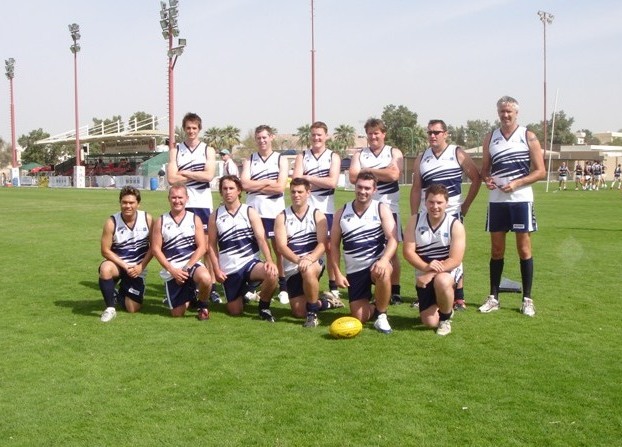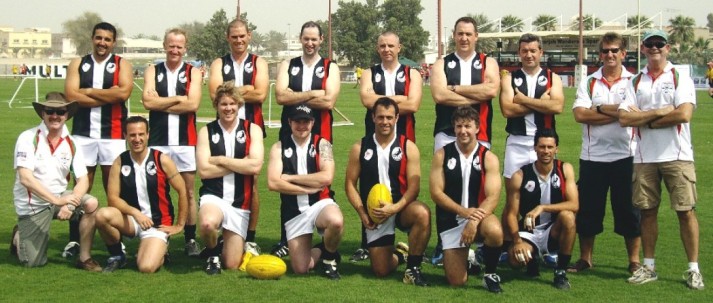New Abu Dhabi and Muscat clubs profiled
- Sunday, April 06 2008 @ 07:50 pm ACST
- Contributed by: Ash Nugent
- Views: 8,658

 | The Middle East football scene continues to flourish with an Abu Dhabi side joining the Dubai Heat, Dubai Dingoes, Doha Kangaroos and a recently-formed Muscat club in that region. After previous attempts in Lebanon, Israel and Turkey, football got the boost it needed when the Dingoes stepped onto the scene in late 2006. In early 2007, the Dingoes hosted a 9-a-side football competition in Dubai which contributed to Doha and the Heat forming. Muscat joined them in late 2007, and Dubai (the city) even managed to secure an AFL preseason match in 2008, with Adelaide defeating Collingwood at the Ghantoot Polo Fields. Adding to all this, a Peres Peace Team will compete at this year’s International Cup, their squad comprised of Israelis and Palestinians. In this article WFN previews the Abu Dhabi and Muscat clubs, giving some background about their formation and some insight into what 2008 may hold for them. |
Abu Dhabi Falcons
The bulk of the credit for the new Abu Dhabi club belongs to Jay Mears. Mears organised their first meeting a month ago, and things have progressed nicely since, the club now having 29 names on their books of which 17 are already training. Most of the new club's players competed at a local level back in Australia. The concept of an Abu Dhabi club became more realistic following the success of the Dingoes and Heat in Dubai (an hour drive away). The Dingoes and the Heat provided a framework to follow and support for the new club. At the same time, several of those involved had already implemented an Auskick program in Abu Dhabi, which was the half-time feature of the Collingwood vs. Adelaide match earlier this year, and were at least partially aware of the commitment and resources required.
Dubbed the Falcons after Abu Dhabi’s favourite pastime Falconry, they contemplated a name-change to the Dockers following a successful attempt to form a sister-club relationship with Fremantle, but have ultimately stuck with their initial and more unique moniker. The Falcons are sponsored by Champion Technologies, the second largest global oilfield production chemical company, aluminium smelter Emirates Aluminium (EMAL) and SNC - Lavalin/WorleyParsons (SLWP), a team company who are currently building the largest aluminium smelter in the world, for EMAL.
While the club's first chapter closed last weekend, with their debut at the Dubai 9s, sustainability will be one of the Falcons' biggest challenges. The club welcomes anyone (player or volunteer) who is interested in becoming involved. Apart from Australian ex-pats, a few rugby and Gaelic footballers have signed-on, but no locals. Mears predicts this will change "once people begin to understand the game and see how it's played". Mears' backed up this invite by saying, "we are making it our main focus to welcome all (UAE) nationals to play for us or even just to support (us)".

Abu Dhabi break at training for a team photo

Abu Dhabi unveil their new kit at the 2008 Dubai 9s
(L-R) Back row: Scotty Cornish, Cameron Granger, Matthew Wood, Mark Whitehead, Jason Phillips, Russell Yule
Front row: Stephen Eitel, Jay Mears, James Kiwi, Mick Uluberti, Marc Peterson, Patrick
Muscat Magpies
The growing interest in Australian Football in Oman has grown out of the local Gaelic football club, Clann na hOman. Clann na hOman was founded a few years ago by a bunch of Irish expats keen for some football action. Steve O’Connor, Tom English, Aaron Henderson and Colin Butler were instrumental in transforming this idea into a reality. The first few years were a challenge, players were required to drive one hour each way to a Al Sawadi resort simply to train on a grassed area. Fortunately, they are now permitted to use the Muscat Rugby club’s pitch, but their facilities still remain less favourable than Dubai. As Oman’s Australian population grew, more of these Australian football fans became involved with the Gaelic club.
In early 2007, Clann nah Oman, along with a few Abu Dhabi players, entered a team in the inaugural Dubai 9s tournament. Given Muscat’s small expatriate population, keeping the Gaelic and Australian Football fraternities together has been essential (Australians make up numbers for Gaelic matches and vice versa).
During the 2007/8 season, interest in the Australian game grew further, and the club hosted the Dubai Dingoes in Muscat, the first ever Australian football match on Omani soil. The match was labelled the O’Connor Cup. Muscat pulled off an upset and scored their first ever win. Momentum continued to build following the match, and whilst retaining close ties with Clann na hOman, the decision was made to distinguish the Australian Football arm of the club, which was to be known as the ‘Muscat Magpies’. The club competed at the 2008 Dubai 9s under this banner for the first time. They also have a matching strip, modelled on the Collingwood guernsey but with the green, white and red of the Omani flag replacing the black and white vertical stripes of the Pies. On-ground progress has also been encouraging, the team returned from the 2007 Dubai 9s tournament winless, however managed to place a respectable second in their pool in 2008, only to go down in the semi finals to eventual winners Dubai Heat Black.
It's not all smooth sailing though. Bridging the gap between Muscat and the Dubai teams remains a challenge. The hope is that the Magpies can continue to build momentum, encouraging more Aussies to training, while retaining a shared pool of players with the Gaelic boys under the broader umbrella of Clann na hOman. The combined playing group currently numbers between 20 and 25 and is of a wide array of nationalities; Irish, English, Australian, American, a couple of Romanians and a West Indian. And whilst a group of 25 is not small, the Magpies’ Chris Holmes is quick to mention that “getting them all out on the track at the same time is an ongoing challenge, and commitment of good numbers to travel for games is the biggest issue in terms of sustainability. In response to this challenge we hope to lift the profile locally to get more players involved, including local participation”. The latter is being driven through affiliation with the Petroleum Development Oman Recreation Club where a football section has been established. In addition the club is planning a more structured approach to their 2008/9 season, with a fixture of games and tournaments (Gaelic Football, Australian Football and International Rules) planned early in the season, aimed at attracting new players, and retaining those existing players, by giving them a reason to train.
Clann na hOman have benefited from the great support of their sponsors including Muscat Duty Free, African and Eastern, Oman United Agencies, Rock Bottom Café and Muscat Private Hospital. They welcome additional corporate support.
The Magpies squad for the 2008 Dubai 9s



 RSS news
RSS news Twitter
Twitter Facebook
Facebook